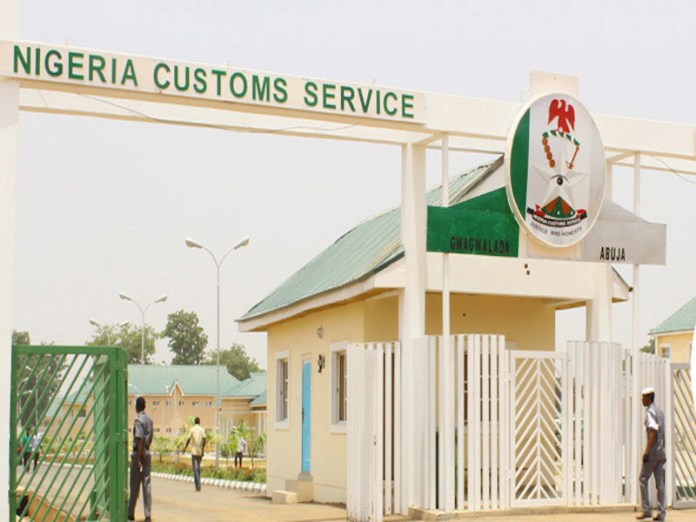The Nigeria Customs Service (NCS) has joined forces with the Nigerian Ports Authority (NPA) and the Nigerian Export Promotion Council (NEPC) to establish five Export Processing Terminals (EPTs).
The initiative was unveiled during an enlightening workshop organized by the Nigerian Shippers Council (NSC) in collaboration with the Presidential Enabling Business Environment Council (PEBEC) in Lagos.
Speaking at the event, Mohammed Babadende, the Customs Area Controller (CAC) of Lilypond Export Command, shed light on the objectives and operations of these newly established terminals.
The five EPTs—Diamond Star, Esslibra, Bellington Cargo, Tenzik Energy, and Sundail Terminal—have been tasked with the crucial mandate of overseeing the stuffing, examination, and documentation processes for export cargo.
This consolidated approach aims to streamline and expedite the export process, reducing delays and enhancing efficiency.
Mr. Babadende emphasized the transformative impact of this collaboration on Nigeria’s non-oil export sector.
He stated, “Customs, in its efforts to enhance trade facilitation in non-oil export, has collaborated with the Nigerian Ports Authority and Nigerian Export Promotion Council in the establishment of Export Processing Terminals (EPTs).”
One of the key achievements highlighted by Mr. Babadende is the significant reduction in export processing time.
He stated, “Export cargoes can now access the ports within 48 hours for loading onto awaiting vessels.”
This improvement is expected to not only expedite the export process but also reduce shipping costs, contributing to the overall competitiveness of Nigerian exports in international markets.
Furthermore, this initiative addresses common challenges faced by exporters, such as delays and the lack of requisite phytosanitary certificates. By housing multiple agencies involved in the export process in one location, these challenges are minimized, and the risk of goods being rejected or returned due to delays is significantly reduced.
Also, the establishment of the EPTs has had a positive impact on security. Mr. Babadende pointed out, “It has eliminated the issue of pilfering of export boxes along the port corridors,” thus ensuring the safe transit of export cargo.
The collaborative effort between the Nigeria Customs Service, Nigerian Ports Authority, and Nigerian Export Promotion Council represents a significant step toward revitalizing Nigeria’s non-oil export sector.
As these Export Processing Terminals become fully operational, they are expected to play a pivotal role in boosting the country’s export capacity, fostering economic growth, and strengthening its position in the global market. Exporters and industry stakeholders are eagerly anticipating the positive outcomes of this partnership as it unfolds.

 Forex3 weeks ago
Forex3 weeks ago
 Naira3 weeks ago
Naira3 weeks ago
 Billionaire Watch2 weeks ago
Billionaire Watch2 weeks ago



 Naira3 weeks ago
Naira3 weeks ago






 Naira2 weeks ago
Naira2 weeks ago




 Naira1 week ago
Naira1 week ago




 Naira4 weeks ago
Naira4 weeks ago






 Naira1 week ago
Naira1 week ago
















